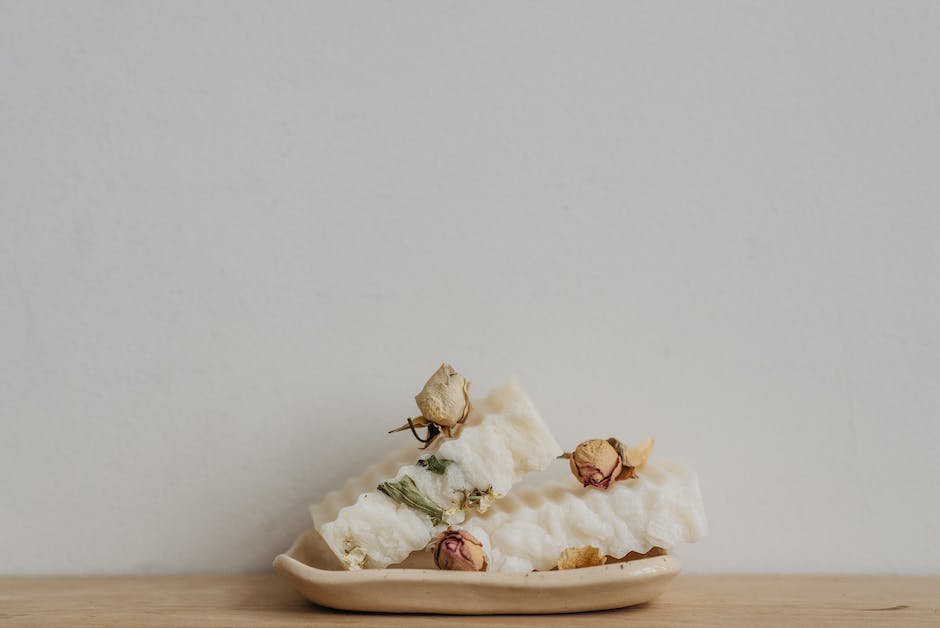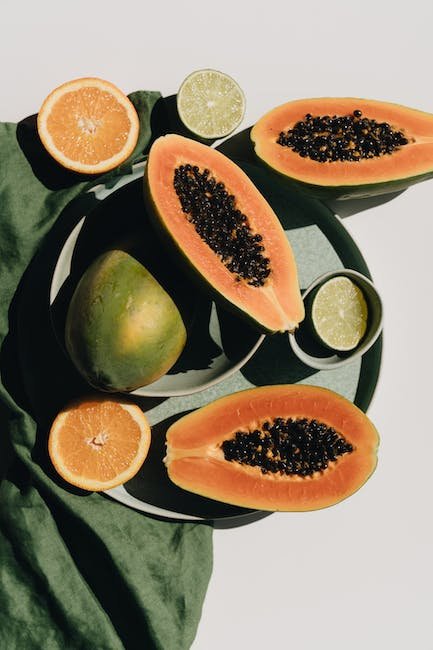Picture a kitchen filled with the comforting aromas of a home-cooked meal, laughter echoing through the air, and gleaming dishes waiting to be washed. As a mom, you strive to create a nurturing environment for your loved ones, and using natural products is key to achieving that. Say goodbye to store-bought dish soaps laden with harsh chemicals and embrace a kinder, eco-friendly alternative. In this DIY guide, we will unveil the secrets to creating your very own natural dish soap from simple ingredients found in your pantry. Simple, effective, and gentle on your skin, this recipe will not only leave your dishes spotless but also grant you peace of mind knowing that you are doing your part in safeguarding both your family and the environment. So, let’s roll up our sleeves and embark on this beautiful journey of concocting a natural dish soap that generations to come will thank you for.
Table of Contents
- Creating an All-Natural Dish Soap Blend
- Choosing the Right Ingredients for Homemade Dish Soap
- Step-by-Step Guide to Making Your Own Natural Dish Soap
- Effective Natural Alternatives for Added Cleaning Power
- Tips for Storing and Using Homemade Natural Dish Soap
- Q&A
- The Conclusion

Creating an All-Natural Dish Soap Blend
In today’s world, there is an increasing demand for all-natural and eco-friendly products. So why not extend this philosophy to our cleaning routines as well? Making your own all-natural dish soap blend not only ensures that you are using safe and gentle ingredients, but it also gives you the satisfaction of creating something from scratch.
When it comes to making an all-natural dish soap, there are several key ingredients that you can use as a base. One of the most common choices is castile soap, a gentle and versatile soap made from vegetable oils. Not only is it biodegradable and gentle on the skin, but it also has excellent cleaning properties.
Enhancing the cleansing power of your blend can be achieved by incorporating essential oils. These oils not only add a pleasant fragrance but also possess antibacterial and antiviral properties. Some popular choices include tea tree oil, lemon oil, or lavender oil.
Tips for creating your own all-natural dish soap blend:
- Start with a base of castile soap, diluted with water to an appropriate consistency.
- Add a few drops of your chosen essential oils for a pleasant scent and extra cleaning power.
- Consider including a natural thickening agent like vegetable glycerin or aloe vera gel to improve the texture and thickness of your soap.
- Experiment with different essential oil blends to find your favorite aroma and customize your soap to your liking.
- Store your homemade dish soap blend in a tightly sealed container to preserve its freshness and effectiveness.
With a little bit of creativity and experimentation, you can create an all-natural dish soap blend that not only effectively cleans your dishes but also aligns with your values of living a more sustainable lifestyle. Take this opportunity to avoid harmful chemicals and reduce your environmental impact, one dish at a time!

Choosing the Right Ingredients for Homemade Dish Soap
When it comes to making your own dish soap, selecting the right ingredients is crucial to ensure a gentle yet effective cleaning experience. Let’s dive into some key factors to consider when choosing the perfect ingredients for your homemade dish soap:
Natural Ingredients:
- Opt for ingredients that are natural and eco-friendly. This not only helps to minimize your environmental impact but also reduces the risk of harsh chemical exposure for you and your family.
- Consider using essential oils such as lemon, lavender, or tea tree oil for their anti-bacterial properties and refreshing scents.
Cleaning Power:
- Choose ingredients that have strong cleaning abilities to effectively tackle greasy dishes and stubborn stains.
- Popular options include Castile soap, baking soda, and white vinegar. These ingredients have proven to be tough on grime while remaining gentle on your hands.
Skin-friendly:
- Ensure that the ingredients you select are gentle on your skin to avoid any irritation or dryness that could occur from prolonged use.
- Consider adding soothing ingredients like aloe vera gel or glycerin to your dish soap mixture. These will help keep your hands moisturized and nourished even after extended periods of dishwashing.
By carefully selecting the right ingredients, you can create a homemade dish soap that not only cleans effectively but also prioritizes the well-being of both your family and the environment. Remember to experiment and find a combination that works best for you!

Step-by-Step Guide to Making Your Own Natural Dish Soap
You no longer have to rely on store-bought dish soaps loaded with chemicals. Making your own natural dish soap is a rewarding and eco-friendly alternative that allows you to control the ingredients. Follow these simple steps to create your very own gentle and effective dish soap right at home:
Step 1: Gather your ingredients
- 1 cup of liquid castile soap
- 1/4 cup of distilled water
- 1 tablespoon of white vinegar
- 10-15 drops of your favorite essential oil for a pleasant scent (optional)
Step 2: Mix the ingredients
- Pour the liquid castile soap into a large mixing bowl.
- Add the distilled water gradually while stirring gently to avoid excessive bubbling.
- Slowly pour in the white vinegar and continue stirring until well combined.
- If desired, add a few drops of your favorite essential oil and mix thoroughly.
Step 3: Store and use
- Transfer the mixture into a clean, empty dish soap bottle.
- Secure the cap tightly and store it in a cool, dry place.
- To use, simply give the bottle a gentle shake before squirting a small amount onto your dish sponge or brush.
- Enjoy effortlessly clean dishes while doing your part for the environment!
Creating your own natural dish soap not only reduces your carbon footprint but also helps protect your hands from harsh chemicals. Experiment with different essential oils to find the perfect scent that adds a touch of freshness to your cleaning routine. Cheers to a greener and cleaner kitchen!
Effective Natural Alternatives for Added Cleaning Power
Keeping your home clean and tidy can sometimes feel like a never-ending task. While there are numerous chemical cleaning products available on the market, why not consider natural alternatives that are not only effective but also eco-friendly? Here are a few suggestions to give your cleaning routine an extra boost:
- Vinegar: This household staple is not just for culinary use. Its acidic properties make it perfect for cutting through stubborn dirt and grime. Mix equal parts water and vinegar to create a versatile all-purpose cleaner for countertops, bathroom fixtures, and even floors.
- Baking Soda: Known for its incredible versatility, baking soda is a potent yet gentle cleaning agent. Use it to remove odors from carpets, scrub away stains on sinks and bathtubs, or create a paste to tackle tough oven grease.
- Lemon Juice: Bursting with citric acid, lemon juice is ideal for tackling grease and mineral deposits. Simply cut a lemon in half and use it to scrub surfaces like cutting boards, faucets, or stovetops. Its fresh aroma will leave your home smelling delightful.
- Citrus Peels: Don’t waste those leftover orange or grapefruit peels! Place them in a jar with white vinegar for a few weeks, strain the liquid, and voila! You have a natural citrus cleaner that can be used on windows, mirrors, or as a deodorizing spray.
By incorporating these natural alternatives into your cleaning routine, you can reduce your environmental footprint while maintaining a clean and healthy living space. Not only will you save money, but you’ll also contribute to a greener and more sustainable future.
Tips for Storing and Using Homemade Natural Dish Soap
So, you’ve decided to ditch the store-bought dish soap and give homemade natural dish soap a try? Great choice! Not only will you be reducing your exposure to harmful chemicals, but you’ll also be doing your part for the environment. To ensure your homemade creation stays effective and fresh, here are some tips for storing and using it:
- Choose the right container: Opt for an airtight bottle or jar to store your homemade dish soap. This will help prevent air and moisture from getting in, ensuring its longevity.
- Label it: Don’t forget to label your container with the ingredients and date of creation. This will help you keep track of its freshness and make it easier to identify.
- Store it in a cool, dry place: Heat and moisture can degrade the effectiveness of your homemade dish soap. Find a cool, dry spot in your kitchen to store it to maintain its potency.
- Shake well before use: Since natural ingredients tend to separate over time, give your dish soap a good shake before each use to ensure even distribution of all the cleaning goodness.
- Dilute as needed: Depending on the concentration of your soap, you may need to dilute it. Experiment with different ratios to find the right strength for your needs.
- Test it on a small area first: Before diving into a sink full of dishes, test your homemade dish soap on a small area to ensure it doesn’t cause any adverse reactions or damage your delicate cookware.
By following these tips, you’ll keep your homemade natural dish soap fresh and effective, ensuring that every wash leaves your dishes sparkling clean without the worry of harmful chemicals. So go ahead, unleash your inner DIY-er, and enjoy the satisfaction of making your own cleaning products!
Q&A
Can I make my own natural dish soap at home?
Certainly! Making your own natural dish soap is not only easy but also a great way to ensure the safety of your family. With simple ingredients and a little effort, you’ll have effective and eco-friendly dish soap in no time.
What are the benefits of making my own natural dish soap?
There are numerous benefits to making your own natural dish soap. Firstly, you have control over the ingredients, ensuring they are safe and non-toxic. Additionally, it’s a more budget-friendly option and reduces plastic waste from store-bought bottles.
What ingredients do I need to make my own natural dish soap?
The main ingredients for making natural dish soap include castile soap, water, vinegar, and essential oils of your choice. These ingredients are readily available and affordable, making it easy for moms to whip up a batch whenever needed.
Why is castile soap commonly used in natural dish soap recipes?
Castile soap is a popular choice for natural dish soap recipes due to its gentle yet effective cleansing properties. It is made from vegetable oils and contains no harsh chemicals, making it safe for both your family and the environment.
Can I add essential oils to my natural dish soap?
Absolutely! Adding a few drops of essential oils not only gives your dish soap a pleasant aroma but also enhances its cleaning power. Essential oils like lemon, tea tree, or lavender have natural antibacterial properties, making them perfect choices.
How do I store my homemade natural dish soap?
It’s best to store your homemade natural dish soap in an airtight container, preferably a glass bottle or a jar with a pump dispenser. Keeping it away from direct sunlight and extreme temperatures will help preserve its quality and extend its shelf life.
Is homemade natural dish soap as effective as store-bought ones?
While homemade natural dish soap may not have the same commercial strength, it is still effective in cleaning dishes. The key is to give it a little extra scrubbing power when needed, but rest assured, your homemade version will get the job done while keeping your family safe.
Are there any precautions I should take when using homemade natural dish soap?
When using homemade natural dish soap, keep in mind that it may be less concentrated than commercial alternatives. Therefore, you might require a little more soap to achieve the desired lather. Nevertheless, it is still a safe and healthy option for your family and the environment.
The Conclusion
As we reach the end of this creative and empowering journey of concocting your very own natural dish soap, we hope that you have found this DIY guide enlightening. By taking matters into your own hands, you’ve not only embraced the art of homemaking but also celebrated the power of sustainability and the gentle touch of mother nature.
Remember, this eco-friendly alternative to store-bought dish soap can be a delightful addition to your daily routine, offering a sense of accomplishment, as you create a safe haven for your family and the environment. The simple ingredients and straightforward process we’ve shared today will undoubtedly empower you, as a mom, in your quest for a healthier, greener lifestyle.
So go forth, fearless moms! Armed with the knowledge and confidence to craft your own natural dish soap, let those bubbles of self-sufficiency fill your kitchen sink. Embrace the subtle fragrance of botanical ingredients, as they dance in harmony with the grease and grime of your dishes. Feel the satisfaction of nurturing your loved ones while keeping harmful chemicals at bay.
As you embark on this sustainable journey, remember that our collective small actions have the power to bring about big changes. Share your newfound knowledge with friends and fellow moms, sparking a ripple effect in your community. Together, we can revolutionize our approach to household cleaning, one soap bubble at a time.
So, dear moms, let your creativity soar and your conscience shine as you embark on this delightful DIY adventure. By opting for natural dish soap, you’re not only advocating for a healthier lifestyle but also embracing the spirit of Mother Nature herself.
As an affiliate, my content may feature links to products I personally use and recommend. By taking action, like subscribing or making a purchase, you’ll be supporting my work and fueling my taco cravings at the same time. Win-win, right?
Want to read more? Check out our Affiliate Disclosure page.